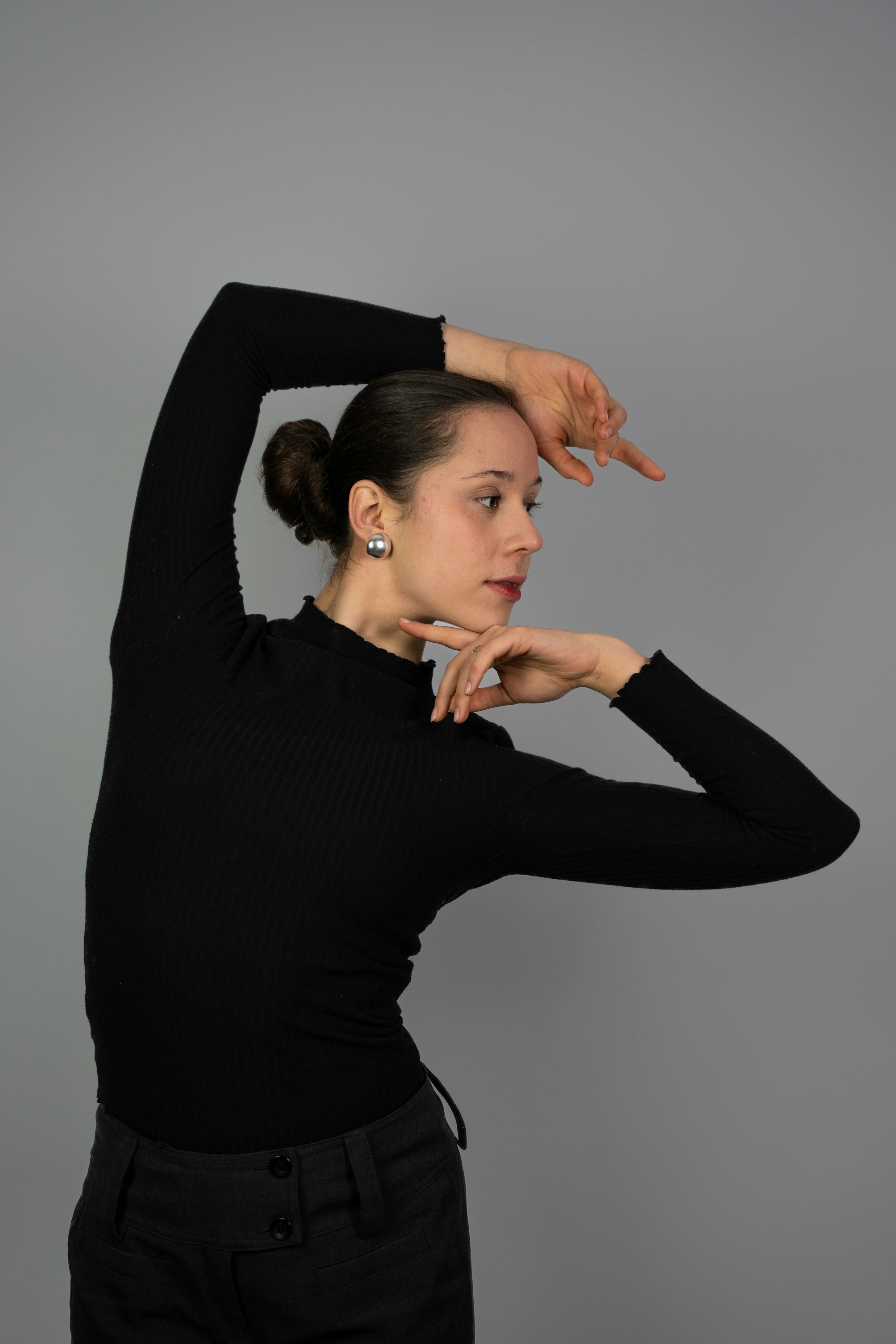Professional Certification in Somatic Coaching Methodologies
75-Hour Comprehensive Training
By Martha Eddy, CMA, RSMT, EdD
PROGRAM OVERVIEW
Duration: 75 contact hours + practicum requirements
Format: Live online sessions, recorded modules, supervised practice
Includes: 40-minute individual coaching session with faculty in consultation with Dr. Eddy
Additional course option: Movement Speaks course ($475) for before or after Phase 1 or 2
Learning Outcomes:
Master the neurodevelopmental science behind somatic interventions.
Develop confidence-building and leadership embodiment competencies.
Create personalized somatic coaching protocols for professional development.
Integrate embodied presence into coaching practice.
Earn professional certification in Active Embodiment methodology.
MODULE 1: FOUNDATIONS OF SOMATIC AWARENESS
Building Professional Competency (8 hours)
Part A: The Science of Embodied Coaching (4 hours)
Neurobiology of the coaching relationship.
Polyvagal theory applications for coaches.
Mirror neuron research and empathic attunment.
Somatic markers and decision-making science.
Part B: Developing Your Somatic Literacy (4 hours)
Advanced Body Scanning: Clinical applications and modifications
Working with stress responses in scanning.
Identifying somatic patterns of specific developmental stages (what age/stage of life is your client's challenge centered in).
Cultural considerations in body awareness practices.
Sensory Awareness Mastery: Therapeutic applications
Grounding techniques for anxiety and greater embodiment.
Sensory overload - how does information processing impact behavior and decision making.
Creating safety through sensory regulation.
Neurodiversity and Disability appreciation.
Practicum Requirements:
5-20 min Daily personal practice for 2 weeks.
Practice sessions with 3 volunteer clients.
Quick Reflection Notes on somatic observations during client sessions.
Optional Peer supervision session.
Assessment:
Case study analysis: identifying somatic patterns in client presentations.
Demonstration of modified techniques for different populations.

MODULE 2: NERVOUS SYSTEM REGULATION FOR PEAK PERFORMANCE
Advanced Stress Resilience & Leadership Applications (10 hours)

Opening Session: Trauma-Informed Coaching Fundamentals (1 hour)
What It Means to Be Trauma-Informed in Professional Coaching
Understanding trauma responses vs. stress responses in professional settings.
The difference between being trauma-informed and providing trauma therapy.
Key principles: Safety, trustworthiness, collaboration, choice, and empowerment.
Recognizing trauma responses in high-achievers and leaders.
When to refer to trauma specialists vs. continuing with performance coaching.
Trauma-Informed Lens for the Remainder of This Program
How trauma-informed awareness enhances coaching effectiveness.
Integrating trauma-informed principles into leadership development.
Creating psychological safety while maintaining professional focus.
Part A: Neurodevelopmental Foundations for Professional Excellence (4 hours)
Dynamic Embodiment's "Relax-to-Focus Series" : NeuroScience In Action
Developmental movement patterns and emotional regulation.
Brain integration through spinal to cross-lateral movement.
Vestibular awareness and relational management.
Primitive reflexes and their impact on adult leadership behavior.
Teaching and Modifying the Sequence
Adaptations for different professional environments and abilities.
Stress-informed modifications for high-pressure situations.
When NOT to use specific developmental patterns.
Part B: Advanced Regulation Techniques for Professional Resilience (5 hours) Note: All techniques in this section apply trauma-informed principles established in the opening session
Dynamic Embodiment's "Continuum of Stress to Peak Performance"
The Physiology of Stress and Optimal Performance States.
Window of tolerance assessment and expansion for leadership challenges.
Anger Mountain - refueling in frustrating professional situations.
Somatic resources and resilience building for sustained high performance.
Recognizing Nervous System States in Professional Contexts
Polyvagal assessment through movement observation.
Hypervigilance, hypoarousal, and optimal performance states.
Intervention timing and pacing for coaching sessions.
Co-regulation techniques for coaches - reducing compassion fatigue and maintaining professional boundaries.
Practicum Requirements:
Teach Relax-to-Focus to 3 different people, noting your choice of modifications.
Video analysis of nervous system state recognition in professional contexts.
Practice co-regulation techniques in peer sessions.
Assessment:
Design a trauma-informed nervous system regulation protocol for a specific professional client type.
Demonstrate ability to recognize trauma responses vs. stress responses and respond appropriately.
MODULE 3: EMBODIED PRESENCE & PROFESSIONAL RELATIONSHIP MASTERY
Mastering the Coaching Container (8 hours)
Part A: Advanced Presence Skills for Leadership Coaching (4 hours)
Breathing for Therapeutic Presence
Synchronizing breath with clients for co-regulation.
Using breath to manage countertransference and maintain professional boundaries.
Breathing techniques for different coaching goals.
Somatic Listening Mastery
Reading micro-expressions and body language in professional contexts.
Cultural differences in somatic expression.
Deep Dive: Sensing client's internal state through your own body.
Part B: Creating Safety Through Embodiment (4 hours)
Mindful Listening in Complex Professional Situations
Working with activated clients in high-stakes situations.
Maintaining presence when clients are upset or under pressure.
Using your neurocellular system as information.
Boundary Setting Through Somatic Awareness
Recognizing or Enhancing physical, physiological and energetic boundaries.
Review: Protecting your nervous system while staying present.
Ethical considerations in somatic coaching.
Practicum Requirements:
Record and analyze 3 coaching sessions for presence quality.
Practice somatic listening with challenging professional scenarios.
Peer feedback on boundary management.
Assessment:
Live demonstration of advanced presence skills.
Analysis of professional coaching relationship dynamics.

MODULE 4: INTEGRATION & TRANSFORMATION TECHNIQUES FOR PROFESSIONAL GROWTH
Facilitating Breakthrough and Change (10 hours)

Part A: Advanced Visualization & Embodiment for Goal Achievement (5 hours)
Somatizing Vision and Goals
What supports relationships - dyadic, team or community building.
Setting Intentions and Creating cellular memory of desired professional outcomes.
When to use visualization or somatization for different coaching goals.
Working with resistance to change through the body.
Performance-Informed Visualization
Safety protocols for guided imagery in professional development.
Recognizing and managing activation during high-stakes visualization.
Grounding techniques for integration of professional goals.
Active Witnessing for Professional Development
Part B: Movement as Professional Development Intervention (5 hours)
Movement for Insight: Advanced Applications
Authentic movement principles in coaching.
Working with stuck professional patterns through movement.
Interpreting movement for meaning-making insights about career and leadership.
Somatic Integration for Sustained Change
Pendulation and titration in movement work.
Completing thwarted movements - what helps you get the job done.
Discharge and integration protocols for professional breakthroughs.
Practicum Requirements:
Design and facilitate 3 embodied visualization or somatization sessions.
Document client breakthroughs using movement interventions.
Study and practice performance-informed modifications.
Assessment:
Create a comprehensive somatic intervention to release professional tension.
Demonstrate safety and efficacy in movement facilitation for goal achievement.
MODULE 5: ACTIVE WITNESSING & CONFLICT RESOLUTION
Advanced Professional Relationship Skills (12 hours)
Part A: Active Witnessing Mastery (6 hours)
Research Foundations
Dr. Eddy's conflict resolution research applications.
Authentic movement and therapeutic witnessing.
Creating containers for difficult emotions and workplace conflicts.
Unpack Active Witnessing
Applications for Different Professional Client Types
Individual internal conflict work (career decisions, values conflicts).
Couples and relationship coaching.
Group and organizational applications.
Cultural awareness and considerations.
Part B: Conflict Resolution Through Embodiment (6 hours)
Advanced Witnessing Skills
Holding space for conflict and activated states in professional settings.
Acknowledging projections and Owning One's Own needs and desires.
Movement for recuperation and integration.
Organizational and Systems Applications
Team dynamics and somatic awareness.
Leadership development through embodied practices - helping a group shift states for work and play (team building).
Conflict mediation using somatic principles in workplace settings.
Practicum Requirements:
Facilitate 2 Active Witnessing sessions with documentation.
Practice with both individual and relational professional conflicts.
Write up a request for supervision on challenging cases.
Assessment:
Design a conflict resolution protocol using DE's Active Witnessing process.
Demonstrate advanced facilitation skills with complex dynamics in professional or group relationships.

MODULE 6: STRESS-INFORMED SOMATIC COACHING
Working with High-Performance Professionals (10 hours)

Part A: Understanding Complex Stress Through a Somatic Lens (5 hours)
Stress Neurobiology for Coaches
Continuum of Short-term Stress to Chronic Professional Burnout.
High-achiever stress patterns - hidden or revealed?
Attachment styles and somatic manifestations in professional relationships.
Recognizing stress responses vs. resistance in high-performers.
Safety and Performance Optimization Protocols
Creating felt safety in the coaching relationship with high-stakes clients.
Somatic resources and grounding for stress-resilient professionals.
When to refer vs. when to support with stress-related challenges.
Part B: Advanced Interventions for Professional Resilience (5 hours)
Dynamic Embodiment Principles
Working with activation and discharge in professional contexts.
Modulation and Slowing Down in coaching high-performers.
Completing the sensory-motor cycle for sustained performance.
Integration and Post-Stress Growth
Building resilience through embodied practices.
Meaning-making and narrative integration for professional challenges.
Supporting post-stress growth through somatic awareness.
Practicum Requirements:
Complete stress-informed coaching certification module.
Practice stress identification and resource-building techniques.
Develop resilience plans for different professional client presentations.
Assessment:
Case presentation of stress-informed coaching approach.
Demonstrate competency in stress recognition and resilience-building response.
MODULE 7: CULTURAL COMPETENCY & ADAPTATION
Inclusive Somatic Coaching Practices (8 hours)
Part A: Cultural Considerations in Somatic Work (4 hours)
What is a culture? Gender, Race, Ethnicity, Age
Body-Based Practices Across Cultures
Cultural attitudes toward touch, movement, and embodiment.
Adapting techniques for different cultural backgrounds.
Religious and spiritual considerations in somatic work.
Social Consciousness and Somatic Coaching
Impact of oppression and discrimination on the nervous system.
Finding the right leadership models: culturally responsible coaching.
Working with internalized oppression through embodiment and MOVEMENT.
Part B: Adaptations for Different Populations (4 hours)
Neurodiversity and Somatic Coaching
Autism spectrum considerations.
ADHD and sensory processing differences.
Adapting techniques for different neurotypes.
Physical Disabilities and Accessibility
Modifying movement-based interventions.
Working with chronic illness and pain.
Creating accessible somatic experiences.
Practicum Requirements:
Work with clients from different cultural backgrounds.
Engage in a coaching session with someone from a different subculture than you.
Pay attention to language and activity you assume for neurodivergent or disabled clients.
Value diverse cultural practices related to embodiment.
Assessment:
Develop culturally adapted somatic coaching protocols.
Demonstrate inclusive facilitation skills.

MODULE 8: PROFESSIONAL DEVELOPMENT & INTEGRATION
Building Your Somatic Coaching Practice (9 hours)

Part A: Developing Your Methodology (4 hours)
Creating Your Signature Approach
Integrating multiple somatic modalities.
Developing your unique coaching framework.
Research and evidence-based practice considerations.
Advanced Assessment and Treatment Planning
Somatic intake and assessment protocols.
Goal setting through embodied awareness.
Progress tracking and outcome measurement.
Part B: Professional and Ethical Considerations (3 hours)
Scope of Practice for Somatic Coaches
Coaching vs. therapy boundaries.
When and how to refer.
Legal and ethical considerations.
Self-Care and Sustainability
Developing a program for preventing your own vicarious stress and burnout.
Guidelines and Commitments for maintaining your own somatic practice.
Supervision and continued education requirements.
Part C: Business Development (2 hours)
Marketing Somatic Coaching Services
Educating clients about somatic approaches.
How to talk about active embodiment in somatic coaching from a Dynamic Embodiment perspective.
Building referral networks.
Practicum Requirements:
Develop personal active embodiment coaching methodology statement.
Create professional intake and assessment tools.
Design self-care and supervision plan.
Assessment:
Present 5 features of your personal active embodiment coaching methodology.
Demonstrate professional competency standards.
CERTIFICATION
REQUIREMENTS
Total Hours: 75 contact hours + practicum
Practicum: 10 supervised practice hours
Individual Session: 40-minute coaching session with Dr. Eddy
Final Project: Case study presentation or research project
Continuing Education: 20 hours annually for certification maintenance with Dynamic Embodiment courses: Movement Speaks/Human Movement Analysis, NeuroMotor Development, Embodied Physiology, Organize Your Body to Organize Your Clarity, Success through Embodied Intention, Recuperation through three different Easing Physical Stress series.
LEVELS
Active Embodiment Somatic Study Certificate (75 hours)
Associate Somatic Movement Professional for Coaches (150 hours with additional specialization provides registration requirements for Somatic Movement Associate)
Dynamic Embodiment Practitioner: Registered Somatic Movement Educator or Somatic Movement Therapist Certification (additional 250 hours provides the educational requirements for registration with ISMETA.org)
LEARNING SUPPORT
Live Sessions: Monthly group calls with Dr. Eddy.
Peer Groups: Peer led practice with Study Guides.
Resource Library: Recorded sessions, handouts, practical articles and research articles.
Individual Support: Zoom Office hours and Q&A sessions.
Community Platform: Online forum for ongoing connection and support.
PRICING
Investment: $1,497 (Early Bird) / $1,747 (Regular)
Payment Plans: Available
CEU Credits: Available for licensed professionals
Key Benefits
Executive presence and leadership embodiment
Being Trauma-informed
Performance under pressure
Resilience building for high-achievers
Team dynamics and organizational applications
Confidence building through embodiment
Stress optimization (but not trauma recovery - how to responsibly refer clients for therapy)
